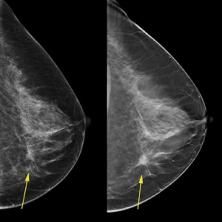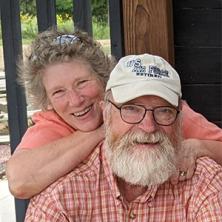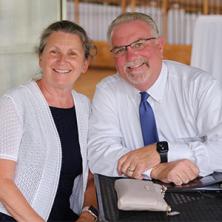Breast Cancer Care
1 in 8 women will develop breast cancer in their lives, and most breast cancers are not linked to a family history. Through our partnership with the Mayo Clinic, the Cancer Care & Infusion Center provides you with top-rated breast cancer care without having to drive to the cities or Rochester.
Breast Cancer Navigators: 507-646-1455
Breast cancer care close to home
Getting a breast cancer diagnosis can be overwhelming. This can be a confusing and scary time for both you and your loved ones, and can leave you not knowing what to do next or where to get help.
We’re here to help you navigate this experience. Thanks to advancements in research, treatment and early diagnosis, millions of people are surviving breast cancer today. Our cancer care team is here to listen, answer your questions, and create a treatment plan that is personalized and meets your goals. Our Breast Care Navigators will be by your side with each phase of your treatment.
Through our partnership with Mayo Clinic, you can get Mayo oncology care right here in Northfield. Your team of Mayo oncology providers, oncology nurses, surgeons, radiologist and breast care navigators will support you during your cancer diagnosis, treatment and survivorship.
We provide advanced cancer care services in a comfortable, soothing setting. Cancer treatments typically require multiple visits that can extend over weeks. Logistics can be exhausting for patients and their families who are already under a great deal of stress. Having this service nearby saves patients driving time and the expense of staying overnight and eating out. You’ll receive care close to home saving you and your support team, time and expenses. Patients say we’ve made their lives easier by the cancer care resources we offer in Northfield.
From diagnosis through treatment and survivorship, we are committed to supporting you, your family and your support team throughout your cancer treatment. Because here at Northfield Hospital + Clinics, we don't just treat a wide variety of cancer diagnosis, we treat you.
Award Winning Care
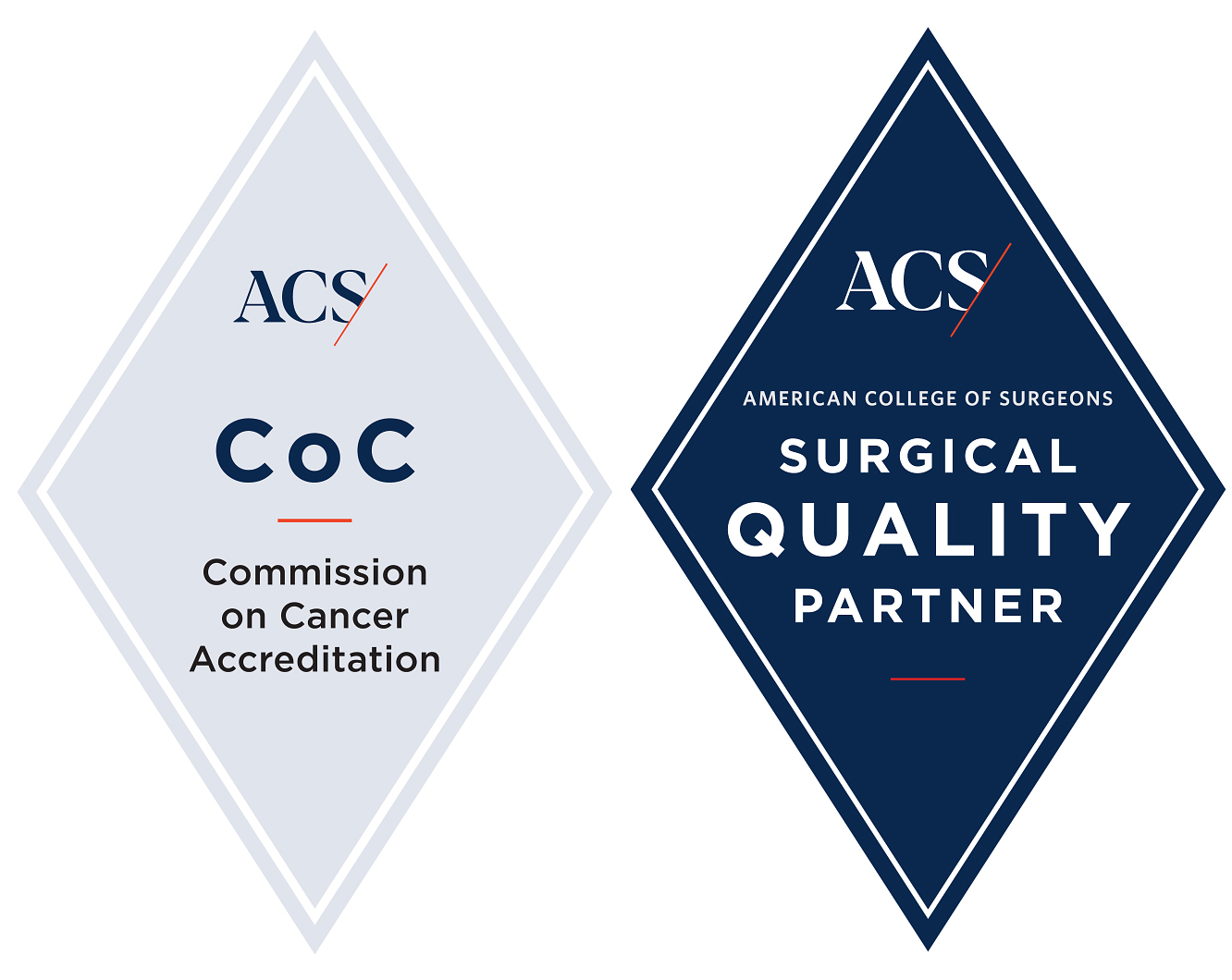
Our Cancer Care team earned top marks from the Commission on Cancer, a rigorous accreditation process that distinguishes elite cancer care in the U.S.

What do I need to know about Breast Cancer?
Breast cancer happens when breast cells change to cancerous cells and then grow to form tumors. It is the second most common cancer in women, but can also be found in men. 1 in 8 women will develop breast cancer in their lives, and most breast cancers are not linked to a family history. Sometimes, the earliest sign is a subtle change found on a routine mammogram.
Symptoms of breast cancer
Symptoms of breast cancer can vary from person to person. If you experience any of these symptoms or any other symptoms not listed that you are worried about, make an appointment to see your primary care provider.
- Changes in the size, shape or contour of your breast
- A lump or thick area within your breast or under your arm that may feel as small as a pea and doesn’t go away
- A change in the look or feel of your skin on your breast or nipple:
- New nipple inversion
- Skin changes such as skin that is dimpled or looks like the peel of an orange
- Nipple discharge
- Peeling or flaking skin on your breast
- Skin that looks red, purple or darker than other parts of your breast
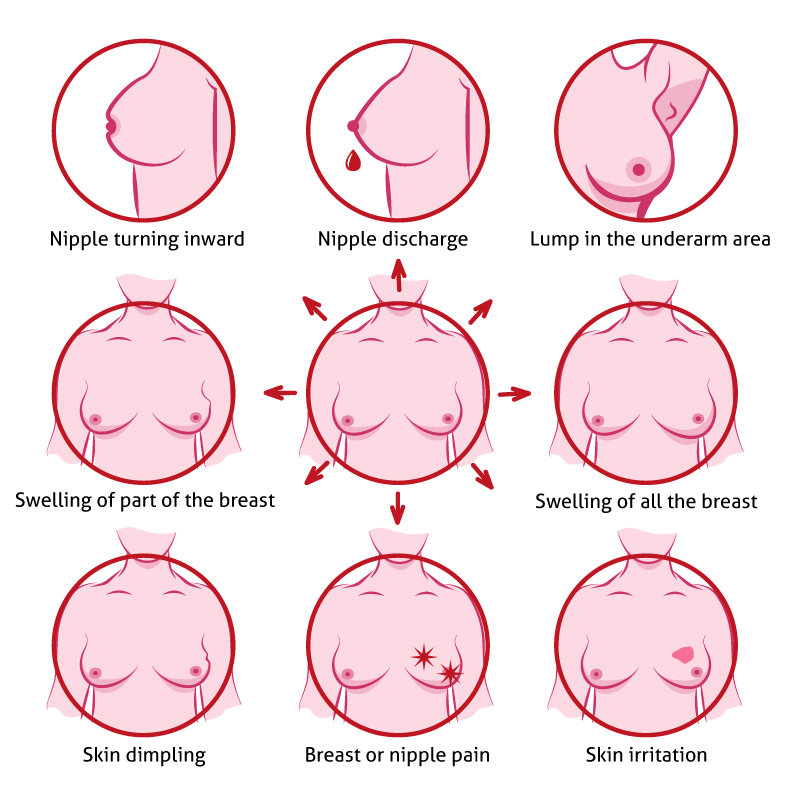
Risk Factors for Breast Cancer
- Family History of Breast Cancer – A family member who has had breast cancer puts you at higher risk of getting breast cancer. If family members got cancer at an early age or multiple family members got cancer, that also puts you at higher risk. Most people who get breast cancer do not have a family history.
- Having inherited gene mutation linked to breast cancer, such as BRAC1 or BRAC2
- A personal history of breast cancer increases your risk of getting it again
- A personal history of atypical hyperplasia
- Beginning your period before the age of 12
- Beginning menopause after 55
- Being female
- Dense breast tissue
- Drinking alcohol increases the risk of breast cancer
- Having your first child after the age of 30
- Never being pregnant
- Getting older - the risk of breast cancer goes up as you get older.
- Taking menopausal hormone therapy
- Obesity
- Radiation treatments to chest prior to age 30
What should I do if I feel I am at high risk of developing breast cancer?
If you are concerned that you might be at a higher risk for getting breast cancer, call our Breast Care Navigators at 507-646-1455. They will help answer your questions.


When to see the doctor
It is important to remember that many lumps are non-cancerous. If you find a lump, don't wait for your next mammogram. Even if your recent mammogram didn’t show anything, make an appointment to see your primary care provider. It’s important to catch breast cancer early. Don’t be afraid to seek help.
Common Cancer Diagnosis Tools
Not everyone will need all of these diagnostic tools. Your provider will determine what you need.
- CT or CAT Scan – Computerized Tomography Scan is an X-ray technique that provides information about the body’s internal organs in slices, or cross-sections. It is used to detect subtle abnormalities, assess treatment effectiveness and to check to see for cancer spread.
- 3D Mammograms – Breast Tomosynthesis (3D Mammography) is 3D imaging that gives the radiologist (x-ray doctor who reads the exam) the ability to view inside the breast layer by layer, helping to see the fine details more clearly by minimizing overlapping tissue. Learn more.
- Computer-aided detection (CAD) – digitizes and analyzes mammograms for suspicious areas that may be cancerous.
- Breast Ultrasound – is an imaging test using high-frequency sound waves to get pictures of the inside of your breast and any lumps. The ultrasound tech will move a small wand over your skin.
- Ultrasound Guided Biopsy – A breast biopsy using ultrasound to guide a radiologist uses a thin, hollow needle to remove a sample of the lump or concerning lymph node for testing.
- MRI (breast) – A breast MRI (magnetic resonance imaging) is a special kind of imaging test that makes pictures of the inside of the breast. This test is usually done after a breast cancer diagnosis to determine the extent of the cancer and help create a treatment plan.
- PET/CT Scan – A PET/CT scan combines a PET (Positron Emission Tomography) scan and a CT (Computed Tomography) scan to provide detailed images of your body. It helps diagnose and stage cancer, assess treatment effectiveness, and monitor recurrence.
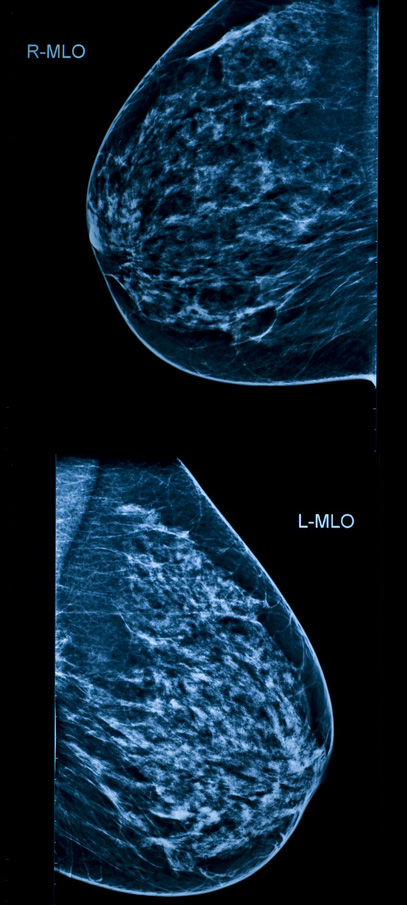
On-site Cancer Clinic
You can get all your cancer care right here, no need to travel.
We offer complete cancer care at our on-site cancer clinic staffed with board-certified medical oncologists/hematologists from Mayo Clinic, general surgeons and oncology certified nurses along with the rest of the cancer care team. We provide chemotherapy and other infusions on-site in our private bays. No need to drive to the Cities or Rochester for appointments.
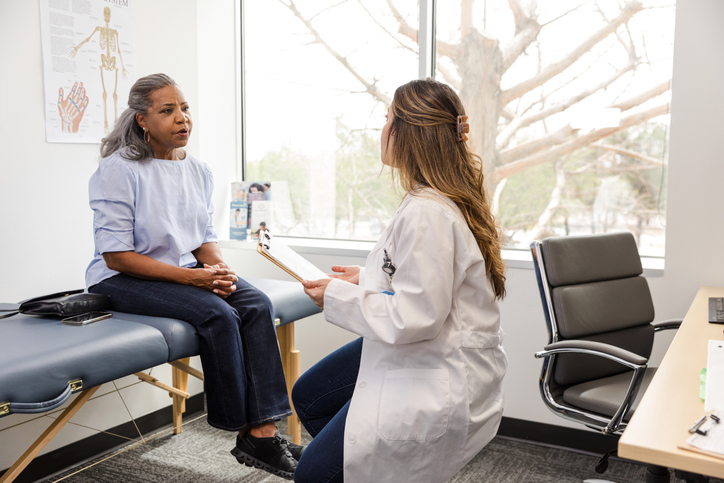

Getting Started
How to prepare for your first appointment
Once a cancer diagnosis has been confirmed, your first appointment will be with a general surgeon and will be about 60 minutes. Here's some information to help you prepare for your appointment.
- Create a list of questions to ask your doctor, for instance:
- Can my breast cancer be cured?
- What is the typical treatment plan for my type of cancer?
- How will treatment affect my daily life?
- Bring a list of all medications, vitamins or supplements that you're taking.
- Bring one family member or friend to the appointment.
- Write down any symptoms you're experiencing, including any that may seem unrelated to your cancer diagnoses.
- Write down your family's history of cancer.
- Bring your insurance card.
Treatments we provide
Each person is unique and that requires a unique treatment plan just for you.
- Breast surgery – The goal of surgery is to remove the cancerous cells. Our providers will discuss with you the best surgical treatment options for you including listening to you, answering your questions and letting you know what to expect.
- Immunotherapy – uses substances either made in the body or in a lab to boost the immune system and help find and destroy cancer cells.
- Hormone therapy – also called endocrine therapy uses medicine to block or slow down cancers that use hormones to make cancer cells grow or divide.
- Targeted drug therapy – uses drugs or other substances to identify and attack certain types of cancer cells.
- Chemotherapy – uses drugs to kill cancer cells.
- Radiation therapy – uses high-powered energy beams, such as X-rays and protons, to kill cancer cells. NH+C works in partnership with the Mayo Clinic Radiation Therapy Clinic across the street from the Cancer Care & Infusion Center.
- Lymphedema – Our Lymphedema program is used as a preventative measure or for people who are experiencing abnormal swelling of a body part caused by an excessive build-up of lymph fluids.
- Symptom management
Types of breast surgery
We provide a variety of cancer-related surgical services. Having this capability in Northfield offers great comfort for patients and their families in terms of quality of care, as well as the convenience of being close to home.
- Lumpectomy – A lumpectomy, sometimes called a partial mastectomy or breast conserving surgery, is used to remove lumps without removing all of the breast tissue.
- Mastectomy – A mastectomy surgery removes all of the breast tissue to remove all of the cancer cells.
- Nipple Sparing Mastectomy – A nipple-sparing mastectomy removes the breast tissue except for the nipple and areola along with some healthy breast skin to make breast reconstruction look more natural.
- Sentinel Lymph Node Biopsy - A sentinel lymph node biopsy removes the first lymph nodes to which cancer has spread from the primary cancer tumor.
- Reconstruction or Plastic Surgery – Having surgery can change the way your breasts look. Some women want to have plastic surgery to reshape their breasts. NH+C partners with MMK Plastic Surgery to keep as much of the care in Northfield as possible. Learn more about MMK Plastic Surgery and their breast reconstruction services.
Team-Based Care
You’re surrounded by an expert cancer care team led by Mayo Clinic oncologists/hematologists and NH+C general surgeons. Your cancer care team will answer your questions and partner with you to develop a personalized treatment plan that promotes healing while managing pain and symptoms. Our goal is to provide you with the guidance, support, and treatment you need throughout your cancer journey.
Your team may include:
- Advance Practice Providers – oversee your treatment and manage treatment side effects and other support care.
- Breast Cancer Navigators - Registered Nurses who help patients navigate their cancer treatment from diagnosis through survivorship, and will be by your side with each phase of your treatment.
- Dietitians – Recommend healthy food choices and improve your appetite
- Genetic counselors – By referral, discuss your inherited cancer risk and testing
- General Surgeons – perform lumpectomies, mastectomies, port placement
- Oncology-certified nurses – Coordinate and provide care
- Pathologists – Examine tissue samples for cancer cells
- Pharmacists – Provide medication
- Primary care provider – Need a provider?
- Plastic Surgery - We partner with MMK Plastic Surgery
- Radiologists – Uses imaging tests to diagnose cancer and perform ultra-sound guided biopsies and assist in locating tumors during surgery
- Radiation oncologists – In partnership with Mayo Clinic Radiation Therapy, prescribe the number and type of radiation treatments you’ll receive
- Rehabilitation therapy (physical and occupational) – Work with you to rebuild your strength and energy during recovery
- Social services – Help you fill needs like lodging, transportation, home care, and social support
- Patient financial services – Help with billing questions

Breast Care Navigator
A Breast Care Navigator is available to help patients navigate their decision-making process and to help with scheduling and education. The Breast Care Navigator is an RN and will be by your side with each phase of your treatment. The Breast Care Navigator:
- Educates patients on diagnosis and treatment
- Triages symptoms related to disease and treatment
- Schedules appointments
- Assists with patient and family paperwork
- Liaisons with the general surgeons, medical oncology and radiation oncology providers and staff
- Is with you during each phase of your treatment
To contact the Breast Care Navigator, call 507-646-1455.
Comfort and Convenience
The Cancer Care & Infusion Center was designed with you in mind. Rooms have big, bright windows that let in natural light and offer a restful, scenic view of the natural prairie. In addition, our healing environment offers:
- On-site cancer clinic with immediate access to the cancer care team
- Private infusion bays with large windows and meadow views
- Convenient location, with reserved, free parking
- Private rooms with beds for extended treatments
- Reclining chairs with warmers
- Aromatherapy
- Free wifi and TV
- On-site lab services
- Kitchenette
- Library resources
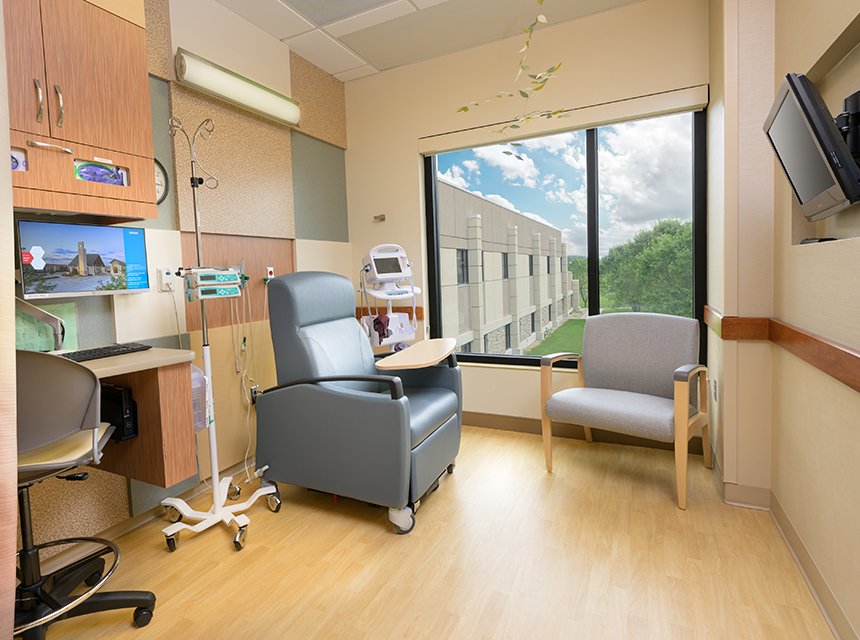

Breast Cancer Support Group
The Breast Cancer Support Group is open to all, no matter where you are at in your breast cancer journey. Led by our Breast Care Navigator, you'll find support, education and useful information and a chance to share stories. For more information, contact the Breast Care Navigator at 507-646-1455.
Cancer Care Services We Offer
- Advanced Diagnostic Imaging (body and breast MRI, PET, 3D Mammogram, CT, Ultrasound)
- Cancer Rehabilitation
- Mayo Clinic Radiation Therapy
- On-site Lab Services
- Breast Care
- Cancer Support Groups
- Nutrition Consultations
- Social Services
- Cancer Care Navigator
- Genetic Referral
- On-site Cancer Clinic
- Breast Surgery
Frequently Asked Questions
Mayo Clinic is out of network, but Northfield Hospital + Clinics is in network. Can I still get my care here?
Even though you may see a Mayo Oncology provider, all billing goes through NH+C. Please check your insurance coverage to make sure that NH+C is in network.
Do I need to bring my records from another healthcare provider?
If you had lab work, pathology and/or imaging completed at some place other than Northfield Hospital + Clinics, please have your medical records sent prior to your first appointment.
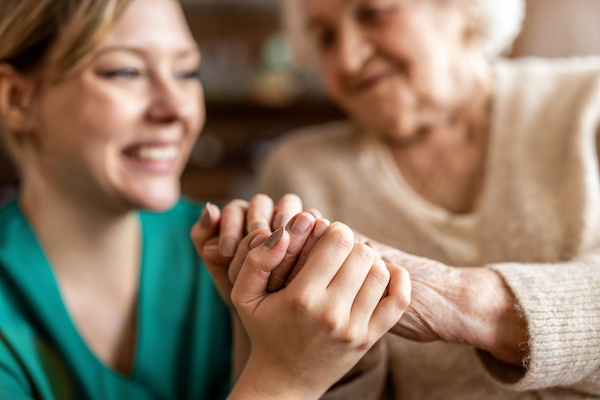
Northfield Hospital Foundation
Through your caring and generosity, you help support the power of the healing touch and the gift of hope.
Your gift enhances the care that cancer patients and their families receive. Past gifts to cancer care services have included:
- Cancer Survivor Event
- Thermometers for patients to have at home
- Cancer support group funds
- Emergency funds
- Sending oncology nurses to the National Oncology Congress
For those who have been touched by Northfield Hospital’s exceptional care, it creates a path to say thank you in a way that allows other patients to experience this care.
Our Team of Doctors and Providers
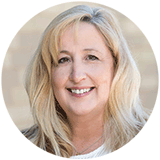




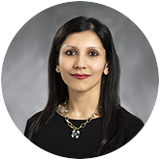


Service Locations
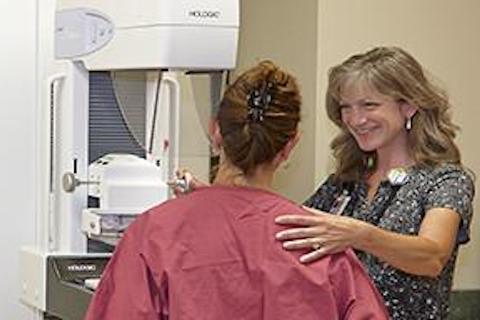
Breast Care Center
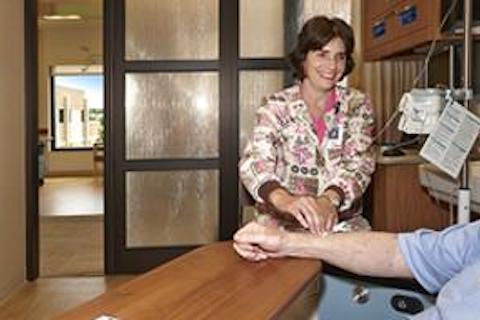
Cancer Care & Infusion Center

